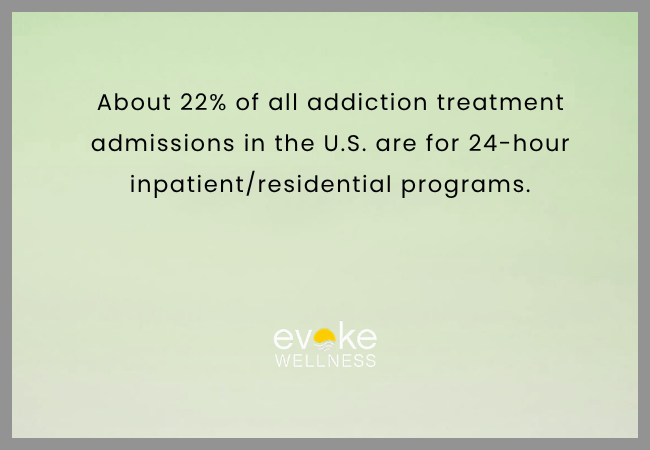Making the decision to seek help for addiction is not an easy one. It’s a step that requires honesty, courage, and a willingness to embrace change. Among the different treatment options available, inpatient rehab offers one of the most structured and intensive environments for healing. But is it right for everyone? Understanding how inpatient rehab works, what to expect, and whether it matches your personal needs is key to determining your path to recovery.
Understanding Inpatient Rehab
Inpatient rehabilitation—also referred to as residential treatment—is a program in which individuals live at a treatment facility full-time while receiving care. This form of treatment is ideal for individuals who need a stable and immersive environment, free from distractions, triggers, and access to substances. The length of stay can vary, but typically ranges from 30 to 90 days depending on the individual’s needs, progress, and clinical recommendations.
While outpatient care may be effective for some, inpatient rehab provides 24-hour supervision and support, which can be critical for people dealing with long-term or severe addiction. Facilities like a Residential Treatment Center in Massachusetts create a safe and structured space for individuals to focus solely on recovery without the burdens and stress of daily life.
The Inpatient Rehab Experience
Each person’s journey through inpatient rehab is unique, but most programs follow a general structure consisting of several phases:
1. Assessment and Admission
When a person enters rehab, they undergo an in-depth evaluation. Medical staff assess the individual’s physical and mental health, substance use history, and any co-occurring conditions. The results help the treatment team build a tailored care plan that best fits the patient’s needs.
2. Detox and Medical Stabilization
Detox is often the first clinical step in the process, especially if the person has been using substances like alcohol, opioids, or benzodiazepines. Withdrawal can be dangerous without professional help, which is why medically supervised detox is critical. A reputable Alcohol Detox Treatment Center in Massachusetts will ensure this phase is handled safely, helping patients manage withdrawal symptoms and reducing health risks.
3. Therapeutic Engagement
Once detox is complete or no longer needed, the patient transitions into the core of inpatient rehab: therapy. This involves individual counseling, group therapy, and sometimes family therapy. Evidence-based approaches like Cognitive-Behavioral Therapy (CBT) and Dialectical Behavior Therapy (DBT) are used to address negative thought patterns, build coping skills, and treat co-occurring mental health issues.
4. Life Skills and Wellness
Many inpatient programs include additional services designed to support life outside of treatment. These may include educational workshops, vocational counseling, nutrition guidance, mindfulness training, and physical fitness activities. For those looking for premium recovery environments, a Luxury Rehab Center Massachusetts often offers enhanced amenities and private accommodations to improve comfort and wellbeing.
5. Aftercare Planning
Preparing for life after rehab is a crucial part of the inpatient journey. Toward the end of treatment, counselors work with patients to develop an aftercare plan. This can involve outpatient therapy, sober living arrangements, or continued support groups. The goal is to maintain progress and prevent relapse after discharge.
Who Benefits Most from Inpatient Rehab?
While inpatient rehab can be beneficial for a wide range of people, it’s especially effective for those who:
-
Have a long history of substance use
-
Struggle with multiple failed attempts at sobriety
-
Experience intense withdrawal symptoms
-
Have co-occurring mental health conditions
-
Lack a stable or supportive home environment
The immersive and intensive nature of inpatient rehab can provide the structure and support that’s often necessary in early recovery. For individuals with complex cases or significant life disruptions due to addiction, this level of care may provide the best chance at long-term healing.
The Role of Mental Health in Recovery
Many individuals suffering from addiction also deal with co-occurring mental health disorders such as depression, anxiety, PTSD, or bipolar disorder. Treating one without addressing the other often leads to relapse and frustration. That’s why an integrated approach, which combines substance use treatment with psychiatric care, is essential. A Mental Health Treatment Center in Massachusetts that also offers addiction care can play a vital role in treating the whole person—body, mind, and spirit.
These dual-diagnosis programs ensure that underlying emotional or psychological issues don’t derail recovery, but instead become part of the healing journey. When mental health is stabilized, individuals are often better equipped to commit to sobriety and rebuild their lives.
A Look Inside the Daily Schedule
A day in inpatient rehab is typically very structured. Mornings often begin early, with meditation, journaling, or group check-ins. Therapy sessions—both individual and group—follow, interspersed with healthy meals and time for rest. Educational sessions in the afternoon may focus on relapse prevention, emotional regulation, or communication skills. Evenings often feature peer support groups or recreational activities.
This level of structure helps patients develop healthy routines, improve self-discipline, and reduce idle time that can lead to cravings or negative thinking. Facilities like an Addiction Treatment Center in Massachusetts often provide a peaceful environment where every element of the day is focused on healing.
Comparing Inpatient and Outpatient Care
While both inpatient and outpatient rehab have their merits, inpatient care offers a higher level of supervision and immersion. Outpatient rehab may allow patients to continue working or living at home, but this also means they’re exposed to the same stressors and temptations that contributed to their substance use.
Inpatient rehab eliminates these external influences, making it easier to concentrate on the inner work required to overcome addiction. For people with strong home support and mild to moderate addiction, outpatient care might suffice. But for those needing stabilization, safety, and full-time support, inpatient care is often the most effective starting point.
Why Choose Us?
Choosing the right treatment center is one of the most critical decisions in your recovery journey. At Evoke Wellness at Cohasset, we understand that effective healing is rooted in compassion, experience, and individualized care. Our team of dedicated professionals offers a supportive, therapeutic environment where you or your loved one can feel safe, understood, and empowered to heal. As a leading Intensive Inpatient Program in Massachusetts, we provide evidence-based treatment plans tailored to each individual’s unique background, diagnosis, and recovery goals.
From the moment you arrive, you’re met with respect and dignity. We know that addiction is not a moral failing—it’s a disease that deserves comprehensive and compassionate care. Our facility is equipped with modern comforts and therapeutic resources designed to support you physically, emotionally, and mentally. We offer a wide range of services including medical detox, dual-diagnosis treatment, trauma-informed therapy, and life skills development—all provided in a structured and nurturing setting.
Our multidisciplinary team includes licensed clinicians, medical doctors, psychiatrists, and wellness specialists who collaborate to create an integrated approach to treatment. We focus not just on abstinence, but on helping you build a meaningful, purpose-driven life beyond addiction. At Evoke Wellness at Cohasset, we don’t just treat the symptoms—we address the root causes, so true, lasting recovery can take place.
We recognize that healing also involves your environment. Our inpatient accommodations are thoughtfully designed to promote peace and focus, combining comfort with clinical excellence. Whether you’re stepping into treatment for the first time or returning after a relapse, we offer the structured support and guidance you need to reclaim your life.
Conclusion
Inpatient rehab may not be the right choice for everyone, but for many, it provides a critical turning point—a chance to break away from destructive patterns, receive round-the-clock care, and rediscover who they are beyond addiction. The immersive nature of inpatient treatment allows individuals to focus fully on recovery without the stress and triggers of daily life. Through therapy, connection, and consistency, many people find their foundation for lasting sobriety in an inpatient setting.
If you’re questioning whether inpatient rehab is the right step, consider your needs, your history with substance use, and the level of support you currently have. You deserve a chance to heal in a setting that respects your dignity and nurtures your growth. At Evoke Wellness at Cohasset, we are here to help guide you through this decision and into a healthier, more fulfilling future. Call us today at 866.931.6429 to speak with one of our compassionate admissions specialists. Whether you’re ready to begin or just gathering information, we’re here to support you every step of the way.
Frequently Asked Questions (FAQs)
What is inpatient rehab and how does it work?
Inpatient rehab is a residential treatment program where individuals live at a facility for a set period to receive intensive care. It typically includes therapy, medical support, and structured activities designed to promote long-term recovery from addiction and mental health disorders.
How long does inpatient rehab typically last?
The length of stay can vary depending on individual needs, but most inpatient rehab programs last between 28 and 90 days. Some may be shorter or longer based on the severity of the addiction, co-occurring disorders, and progress in treatment.
Who is inpatient rehab best suited for?
Inpatient rehab is best for individuals who need a highly structured environment, have a history of relapse, lack a supportive home situation, or suffer from co-occurring mental health conditions. It offers a focused and immersive approach to recovery.
What’s the difference between inpatient rehab and outpatient rehab?
Inpatient rehab requires you to live at the treatment facility full-time, while outpatient rehab allows you to live at home and attend treatment sessions during the day or evening. Inpatient care is often more intensive and suited for those with more severe conditions.
Is inpatient rehab covered by insurance?
Many health insurance plans do cover inpatient rehab, though coverage levels vary. It’s important to verify benefits with your provider or contact the rehab center’s admissions team to help you understand what your insurance will cover.
Can I bring personal items to inpatient rehab?
Most facilities allow you to bring basic personal items, such as toiletries, clothing, and a journal. However, there are typically restrictions on electronics, certain medications, and items that could pose a safety risk. Always check the facility’s packing guidelines.





